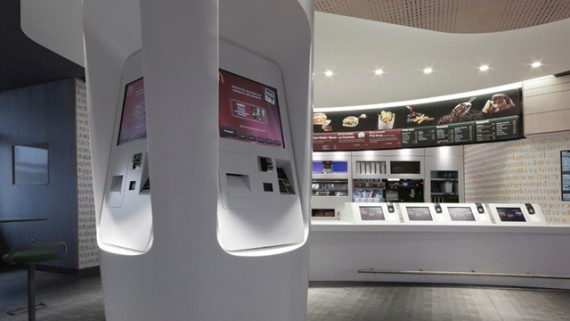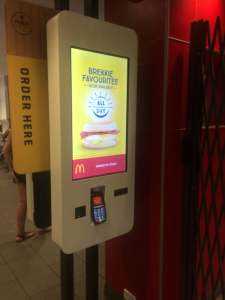
Week 5 Prompt: Technology
Depending on whom you ask, technology is likely to save society or else hasten its demise. But such black-and-white thinking rarely captures the subtleties of technological decision-making or the philosophical problems inherent to hard determinism. Indeed, while it is clear how technology drives culture — by opening up new ways of being in the world — historians of technology have also argued the reverse: that culture and nature, including non-human actors and scientific forces, necessarily give shape to technology. These ideas have been articulated variously by Trevor Pinch and Wiebe Bijker (Social Construction of Technology), and Bruno Latour, Michel Callon, and John Law (Actor Network Theory). This week, pay attention to technology both in its obvious (digital electronics) and non-obvious (screw drivers, walking canes) forms. Is technology something people openly discuss? Is it something society values? Do students feel pressure to pursue STEM careers? Are people deterministic in their attitudes? (E.g “There’s nothing we can do about it.” “Technology is unstoppable.”) Do people long for an earlier, “simpler” time? Take a picture of a common piece of technology, and explain how and why people use it.
Ryan Hildebrandt

One of the more noticeable uses of technology that stands out for most Americans visiting Japan is the use of automated ordering in Japanese restaurants. For many restaurant chains that specialize in serving the masses of businesspeople and students on their lunch breaks, machines like the ones pictured help to streamline the ordering process for both the kitchen and the customer. Instead of waiting to be seated, then waiting for a menu, then waiting to order, then waiting for your food, then waiting for the check, you simply walk in, place your order on the machine, and then you’ll be seated promptly and your food is already paid for and on the way out in minutes. Each machine allows you to fully customize your order with the full menu, including appetizers, drinks, sides, entrees, and desserts. Most restaurants that use this model offer lunch sets (an entree with rice, soup, and a couple sides) for $7-10 to cater to the lunch rush customers. They change seasonally and with different holidays, featuring different dishes and special sides depending on the time of year. It’s interesting to note that these machines don’t replace the kind of fast food service we’re familiar with, because Japan has plenty of that already. Go into any McDonald’s, KFC, or MossBurger and you’ll feel right at home with people taking your order and getting your food just like they would in the States. This automated ordering system fills a sort of middle-ground niche between fast food and a full sit-down restaurant. You still can sit down and enjoy your mea (which is a thousand times better than any fast food chain) without having to go through the ordering process and delays that come with a usual restaurant. It’s one way out of many that technology finds its way into every day life in Japan.
Danielle Norgren
Last week I spent my vacation in the South of France, in Nice. After a long day of exploring a modern art museum and the local market, my friend and I were desperately craving ice cream. Unfortunately, it was past 9, which meant all the supermarkets were closed. As a last resort, we decided to stop at McDonalds. When we first entered, I was surprised to see that cashiers had been replaced by touchscreens. With these touchscreens, one could customize their meal with ease, merely swiping a credit card when the order was complete. With this technology, all human contact was avoided. In a country that seems to place emphasis on interactions between the customer and the business (it is considered rude to enter a store without greeting the store owner), this seemed bizarre to me.
This experience immediately reminded me of the summer before my freshman year at Colgate, during which the Bentons were asked to read “The Second Machine Age: Work, Progress, and Prosperity in a Time of Brilliant Technologies” by Andrew McAfee and Erik Brynjolfsson. As a brief synopsis, this book discusses the ability of machines to transform our economy. Technology can effectively be used to replace tasks which were once given to humans. With these new touch screen machines, the role of the cashier has been rendered inessential.
As I rarely go to McDonalds in America, I cannot be sure that this new technology is unique to France. For the most part, American and French societies seem to benefit from similar implications of technology. However, it is interesting to consider the implications a “technological revolution” would have on the french economy. France currently faces an unemployment rate of 10.31 percent. I wonder how the country could adapt to losing more jobs as a result of enhanced technology
Allison Zengilowski
One piece of technology that initially surprised me upon arriving in Australia exists at McDonald’s. So far, at every one I have been to, they have these machines were you can place your order instead of doing so at the counter. There is a sense of control in this interaction, as you are able to explore the menu in a much more physical away. However, it does take out the human part of the restaurant. If you have a credit or debit card, you can pay at the machine and then you simply wait for your order number to be called. If paying cash, you can still place your order, and then you approach the register to exchange currency for your meal. At these McDonald’s, it is entirely possible to have no human interaction. It does increase efficiency, but it also highlights how technology is removing human contact from our everyday experiences.


